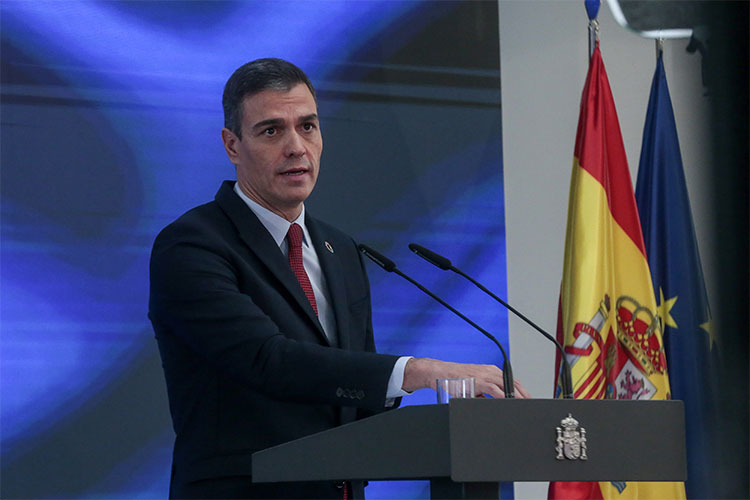The Spanish Government Exports Its Internal Problems By Criticizing Algeria

The Spanish Government, led by Pedro Sanchez, is trying to vent its political isolation at home by trying to blame Algeria for the successive parliamentary scandals of the government, in the context of the “unilateral and unconstitutional” decisions of its president, which have led to a deterioration in relations with Algeria, an exceptional partner for Madrid.
In the latest statement, taken completely out of context, the Spanish Foreign Minister, José Manuel Albares, called on Algeria not to interfere in his country’s internal affairs, in an acrobatic leap that remains incomprehensible, given that Algeria has not made any statement on Spain from any of its officials for months.
“What we want from Algeria is what we want from all our neighbors and all Arab countries… We want mutual respect and non-interference in our internal affairs,” the Spanish official said in an interview with El Espanol. Albares did not elaborate on the reasons that led him to make such a statement, especially as relations between Algeria and Madrid have been at a standstill for some time, but without any noise.
Some analyses stopped at the background of this statement and concluded that it was taken completely out of context, which led them to search for other, invisible motives.
These analyses suggested the hypothesis that the Spanish government wanted to divert the attention of the Spanish people to the crisis with Algeria, in order to distract them from the growing pressure on the president. The government of Pedro Sanchez, through his allies in the government, as well as the opposition parties, who were not convinced by all the justifications he presented to justify changing Spain’s historical position on the Sahrawi issue.
Sanchez had appeared last Wednesday before the Spanish Parliament to answer a series of questions, the first of which was to reveal the reasons for his change of position on the Sahrawi issue and the fact that he had been subjected to blackmail by the Moroccan camp regime, which “forced” him to dismiss the former Foreign Minister, Arancha Gonzales Laya, for receiving the president of the Sahrawi Arab Republic, Ibrahim Ghali for treatment in Spain for “Covid 19”, in April 2021, in exchange for the normalization of relations with Rabat.
However, Sanchez avoided answering the deputies’ questions, to schedule a second impeachment within a week, today, Wednesday 26 April 2023, to answer the same questions, in the most complex political crisis that Sanchez has experienced since he took the reins of the “Moncloa” palace.
What is interesting about these developments is that his ally in the coalition government is supporting this accountability, not even knowing the message that Sanchez sent to the King of the Makhzen, Mohammed VI, in April last year to renormalize bilateral relations.
This comes a few weeks before the municipal and regional elections scheduled for 28 May in Spain, and with it the Spanish parties began to evade responsibility for the Prime Minister’s decision to support the Moroccan regime’s plan in Western Sahara, stressing that it would not bind them if they won the next elections.
In an interview with the Spanish newspaper ‘ABC’, the leader of the ‘Vox’ party, Santiago Abascal, attacked the head of his country’s government, accusing him of tyranny and disrespect for the political class in Spain, saying: “The head of government did not depend on anyone, he acted as he is, authoritarian in front of the parliament, in front of half of his government, in front of his voters and in front of Spain’s historical position on Western Sahara.
The Spanish party official said he did not know the background to Sanchez’s change of position on the Sahrawi issue: “We don’t know if it was because he wanted to get a seat in NATO, or because of personal interests, or because he was being blackmailed, or because Morocco paid him to do it. We do not know, and perhaps we will never know. All we know is that the Prime Minister is deluding himself and does not respect parliament or democracy, he only respects his person”.
As for what he would do if he became part of the government, he said he would open a debate in parliament, stressing: “If we change the position on Western Sahara, it will be with the approval of the Spanish Parliament, with a certain consensus and within the framework of dialogue… This is a very important decision, so it cannot be taken”, by one person, that is. What we told the Prime Minister was that he had to tell his Moroccan interlocutors that the future government would not be bound by the decisions he had taken alone.



